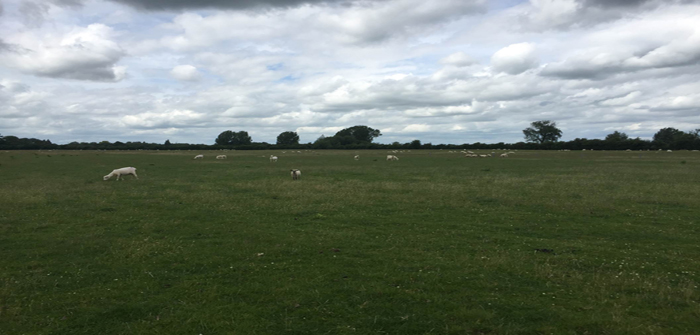Sheep farmers can reduce worm burdens in lambs and improve their growth rates by treating ewes with a long-acting wormer prior to lambing, a recent study has found.
Around two weeks before lambing until six weeks post lambing ewes are more likely to shed worm larvae due to decreased immunity. This is known as the spring rise.
Trial results
A trial by FAI Farms in Oxfordshire last year found that injecting ewes with a long-acting moxidectin (clear) wormer led to low worm egg counts in lambs throughout the study period.
This is compared to ewes that were treated with the short-acting clear wormer; doramectin or were not treated at all (control group). Both of these groups showed higher worm egg counts in lambs, said Dr Ashleigh Bright, head of science at FAI Farms.
Dr Bright said: “The group receiving the short-acting anthelmintic had low FECs initially, increasing from four weeks after lambing. The control group had a higher FEC than either the short acting or long acting treatment groups. This meant ewes and lambs in the control group required treatment for parasites at week five after lambing and week seven after lambing respectively (FECs >250epg).
“The long-acting group also showed reduced pasture contamination and higher lamb growth rates compared to the other two groups.”
Between shearing and weaning, when lambs are at pasture, lambs from ewes treated with the long-acting product had numerically improved growth rates; they outgrew the untreated control lamb group by 1.7kg and the short-acting group by 0.7kg.
This extra growth rate could equate to an additional £2.94 per lamb, in a 60-day period, when comparing lambs from the long-acting treatment group and the control or an extra £1.21 per lamb when comparing the long-acting treatment group to lambs treated with a non-persistent product.
The study also found that single-bearing ewes produced fewer eggs and therefore contaminated less pasture compared to twin, or triplet-bearing ewes. This is because the twin and triplet-bearing ewes are potentially drawing more protein for milk production they have a greater immunity drop compared to single-bearing ewes.
As a result, Zoetis vet Dr Dave Armstrong suggested it may be worth leaving the single-bearing ewes untreated and instead monitor their worm egg counts.
Dr Armstrong said: “With the annual cost of stomach worms to the British sheep industry estimated to be about £84 million, sheep farmers need to be looking at ways to reduce losses on farm due to worms, but in a responsible way”.


